Question 1: Do you think that chanting, over time, will help me to become more spiritually realised rather than forever in this subtle mind world of mine? I’ve always known I’m not of the material world. But the subtle world has been my home for a long time. After talking with you, I think I realised that there really is more than that. But then that perplexed me, because what if I can’t get past it? What if that is as far as I can go? Do you think that I need to let go of all the mystical, magical pagan things that I do and am a part of in order to move forward? I mean, am I cheating myself, if I am doing rituals for the solstices, and the equinoxes and then does that mean that I am praying to demigods instead of Krishna and He would not be pleased?
Answer:
Paganism is the worship of many gods or goddesses [polytheism], or the earth or nature [animism]. The Latin root of the word “pagan” meant “rural” or “rustic.” It was a derogatory term suggesting primitiveness or backwardness, first used in the fourth century by the early Christians for people who practiced polytheism or other ethnic religions. It was a term similar in meaning to “heathen.” In the Roman Empire at that time, paganism has broadly connoted the “religion of the peasantry.”

Modern pagan traditions often incorporate beliefs or practices, such as nature worship, that are different from those in the largest world religions. Contemporary knowledge of old pagan religions and beliefs comes from several sources, including anthropological and archeological field research, and the historical accounts of ancient writers of the Greco-Roman eras. Most modern pagan religions existing today [called “neopaganism”] express a world view that is pantheistic, polytheistic or animistic, but some are monotheistic.

[Pantheism is the doctrine that God and the universe are identical, leading to the worship of gross objects in nature such as trees or rocks or hills etc. Polytheism is the worship of many gods and goddesses, as in ancient Greco-Roman beliefs or Vedic demigod worship. Animism is the attribution of conscious life to objects in nature or to inanimate objects, and the worship of nature spirits. Monotheism is the worship of one God. Monotheistic religions do not necessarily worship the same God.]
If you want to continue with your pagan rituals and magic stuff that is your choice. You can add the chanting and it will still have a gradual effect. But it is like Jesus said about serving two masters – God and Mammon – you cannot really serve both. And I think you realize already that the pagan stuff is on the material plane, the worship of the natural world or demigods within the material universe. It is not transcendental as it worships nature, phenomena and beings of the material universe, and is therefore also not eternal – any benefits are limited and temporary.

This does not mean you can’t love nature – pagans don’t have a monopoly on that. It is okay to love nature as the energy of Krishna. But we should acknowledge where it comes from. Krishna says in Bhagavad-gita:
O son of Kunti [Arjuna], I am the taste of water, the light of the sun and the moon, the syllable om in the Vedic mantras; I am the sound in ether and ability in man.
[Bhagavad-gita 7:18]
But if you are engaging in those witchy activities, your spiritual progress will be slowed down. Modern druidism and various modern pagan, shamanic and wicca philosophies and practices are largely speculative – they have been invented by conditioned souls. And how they are practiced today is almost certainly very different to how they were practiced in ancient times. Hopefully no human sacrifices. Not that they are all evil and “of the devil” as some people will claim, but they are incomplete and cannot take us beyond the gross and subtle material dimensions. They cannot take us to the beautiful world of Krishna.

Another important point is that pagan worship is not even proper demigod worship as found in the Vedas. The Vedas do describe elaborate systems of worship and activities to please the various demigods in order to gain certain material benedictions, though Krishna describes the results as being limited and temporary, and ultimately coming from Him. But if a materialistic person worships the demigods properly he will gradually be elevated to the position of becoming the servant of Vishnu or Krishna, though it is a very, very long way round. Even this system has to be followed properly and carefully – you can’t just make it up.
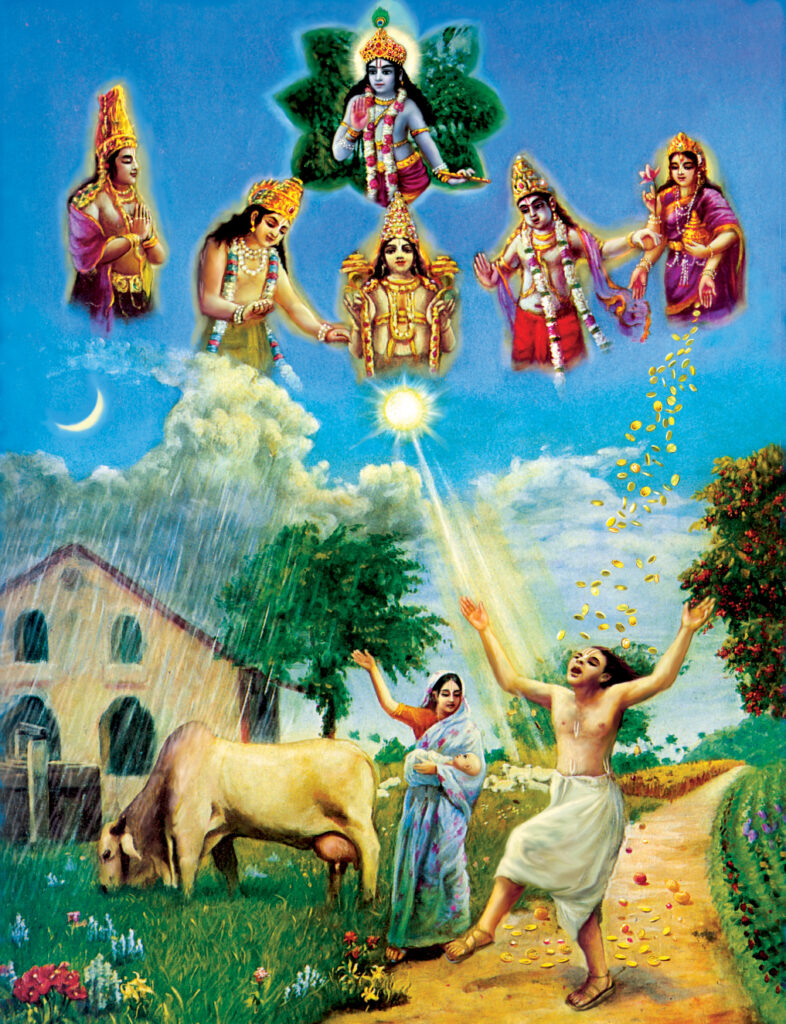
And one cannot properly worship Krishna and worship the demigods at the same time. Here is some information about demigod worship, taken from the Bhagavad-gita:
The Flowery Words of the Vedas
Men of small knowledge are very much attached to the flowery words of the Vedas, which recommend various fruitive activities for elevation to the heavenly planets, resultant good birth, power and so forth. Being desirous of sense gratification and opulent life, they say that there is nothing more than this.
[Bhagavad-gita 2:42-43]
Those who study the Vedas and drink the soma juice, seeking the heavenly planets, worship Me indirectly. Purified of sinful reactions, they take birth on the pious, heavenly planet of Indra, where they enjoy godly delights. When they have thus enjoyed vast heavenly sense pleasure and the results of their pious activities are exhausted, they return to this mortal planet again. Thus those who seek sense enjoyment by adhering to the principles of the three Vedas achieve only repeated birth and death.
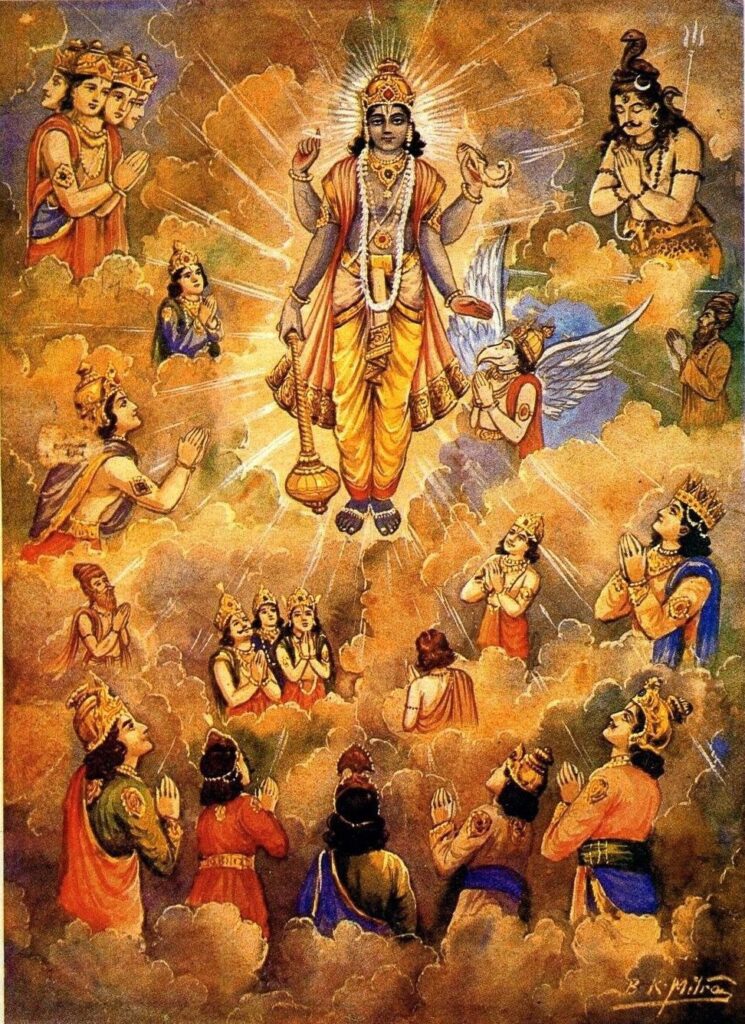
But those who always worship Me with exclusive devotion, meditating on My transcendental form – to them I carry what they lack, and I preserve what they have. Those who are devotees of other gods and who worship them with faith actually worship only Me, O son of Kunti, but they do so in a wrong way. I am the only enjoyer and master of all sacrifices. Therefore, those who do not recognize My true transcendental nature fall down. Those who worship the demigods will take birth among the demigods; those who worship the ancestors go to the ancestors; those who worship ghosts and spirits will take birth among such beings; and those who worship Me will live with Me.
[Bhagavad-gita 9:20-25]
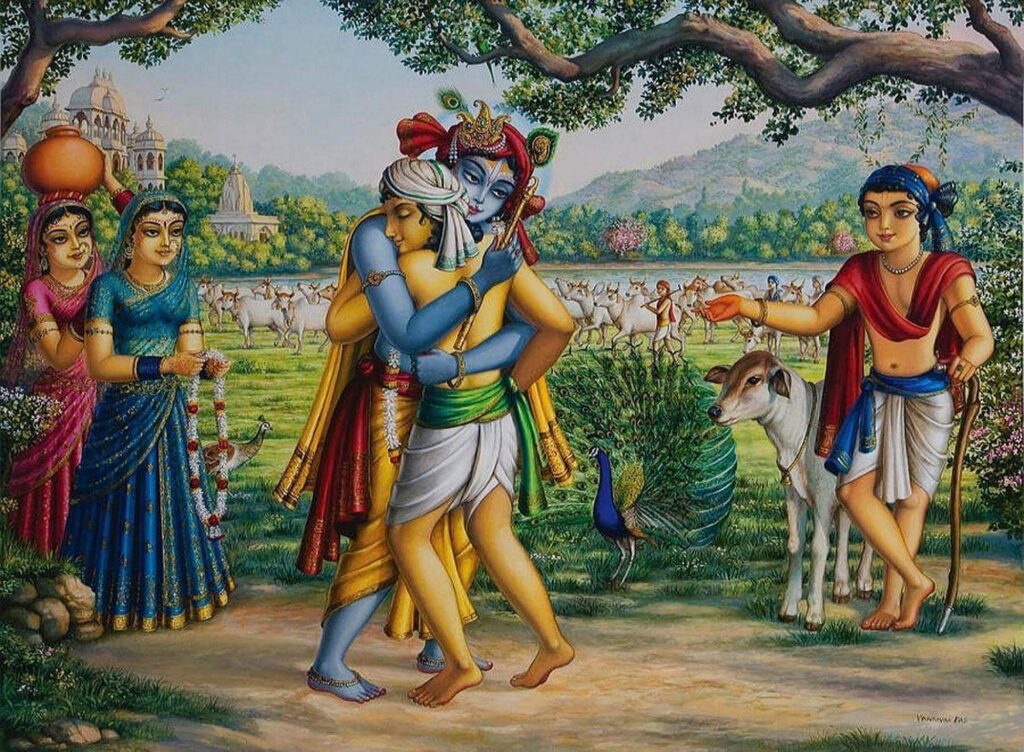
No one has any right to tell you what to do. You would always be welcome to come and chant. How much or how often you apply this process is up to you. Anyway, if you are worried that the chanting might not work or that you might not be able to connect with the bona fide spiritual master – and that would only be on your side not on his – then you can keep your spells, black cat, pointy hat, magic wand and broomstick as a backup!

There is no way a real spiritual master will not hear your prayers. Krishna is in your heart and He is in the guru’s heart, and they both want you millions of times more than you want them. It is said that if you take a step towards Krishna He takes one hundred steps towards you. The genuine devotee of Krishna is not an ordinary man – he can hear your prayers.

Question 2: Have there ever been any great female devotees? I know you have said that spiritually men and women are seen equally, but I don’t think I have seen or heard of a woman in the the position of spiritual master.
Answer:
Yes, there are many great female devotees throughout history and among devotees today. But firstly, we should understand that being a spiritual master is a state of consciousness rather than a position. “Guru” means “heavy” – one who is heavily laden with the fruit of love for God. So a pure devotee is a guru – a pure lover of God. They may have no disciples, one disciple or many disciples. It is up to Krishna who he brings along to put under His devotee’s care. The number of disciples does not define the depth of the devotee’s love. Queen Kunti, the mother of Arjuna, has amazing teachings in the Srimad Bhagavatam.
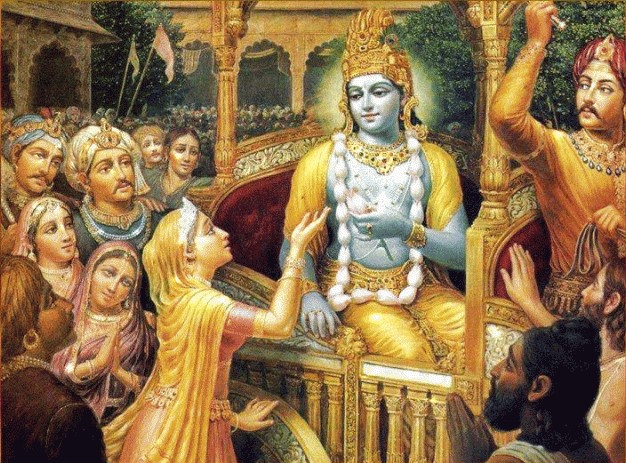
Drupadi, the wife of the Pandavas, and Mirabhai were wonderful female devotees. Jahnavadevi, the wife of Lord Nityananda, was a spiritual master in her own right, who had both male and female disciples. In the next generation after Sri Chaitanya and Nityananda Prabhu – 1600s and 1700 – many great female Vaishnavas followed the example of Jahnavadevi. Two of the most prominent being Hemlata and Gangamata Goswami.
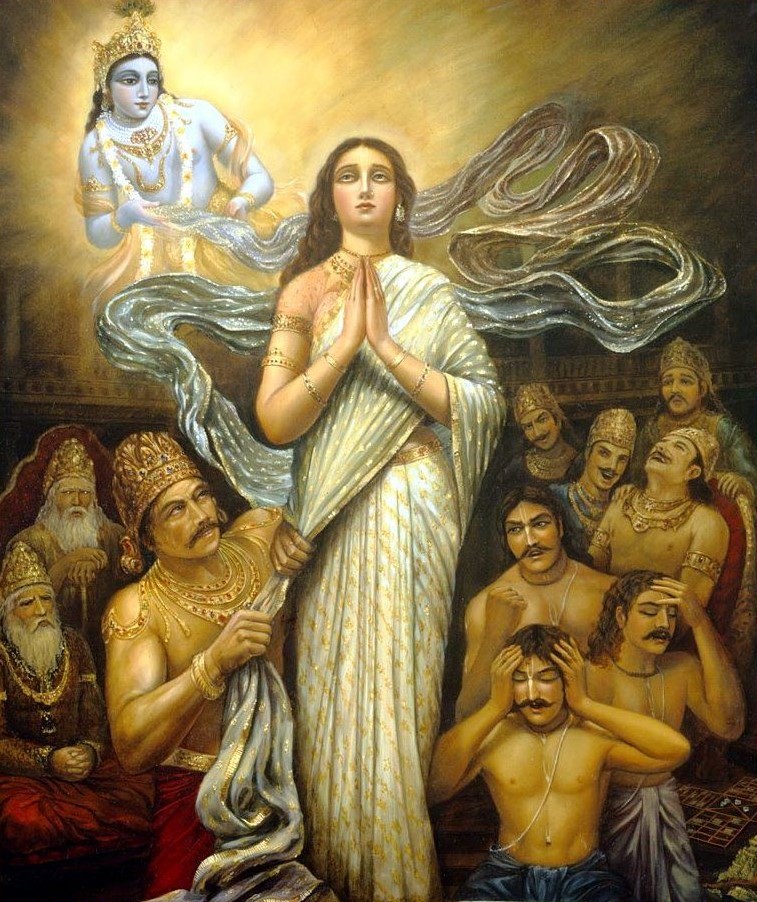
Hemlata Thakurani was the eldest daughter of Srinivasa Acarya and had many disciples, both men and women. She was a great mystic who developed perfect love for God. Gangamata Goswami, whose disciplic descent is traced to Nityananda Prabhu, was the daughter of King Naresha Narayana of Puntaya in Bengal. Gangamata never married, and so she was given the title “Goswami” (“controller of the senses”) for her strict celibacy and profound wisdom. Mother Yasoda is the emblem of maternal affection for Lord Krishna.
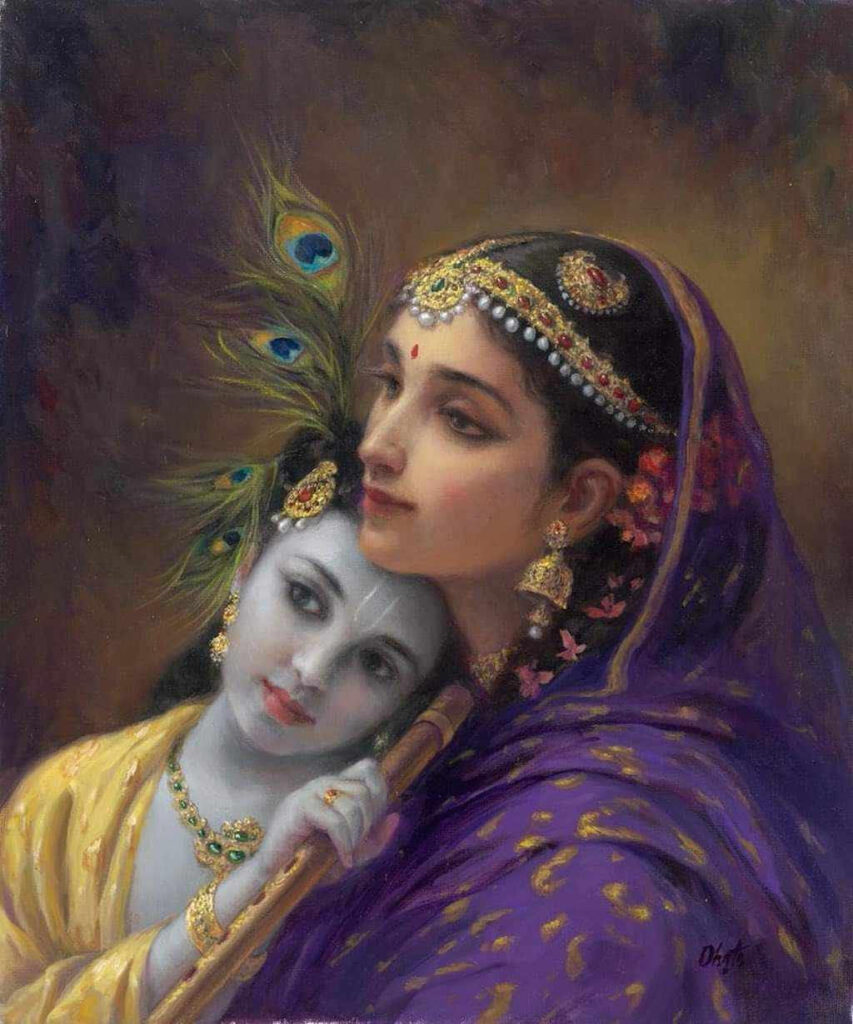
I know of at least two great female Vaisnavas who were disciples of Srila Bhaktivedanta Swami. Many of our spiritual master’s female disciples are awesome – some are very spiritually advanced and run various centres and projects. But we should not think that only the person out front or who sits on a big seat is an advanced devotee – we should appreciate that one can be a great devotee and not even be very philosophically inclined or have a prominent position within some organization.
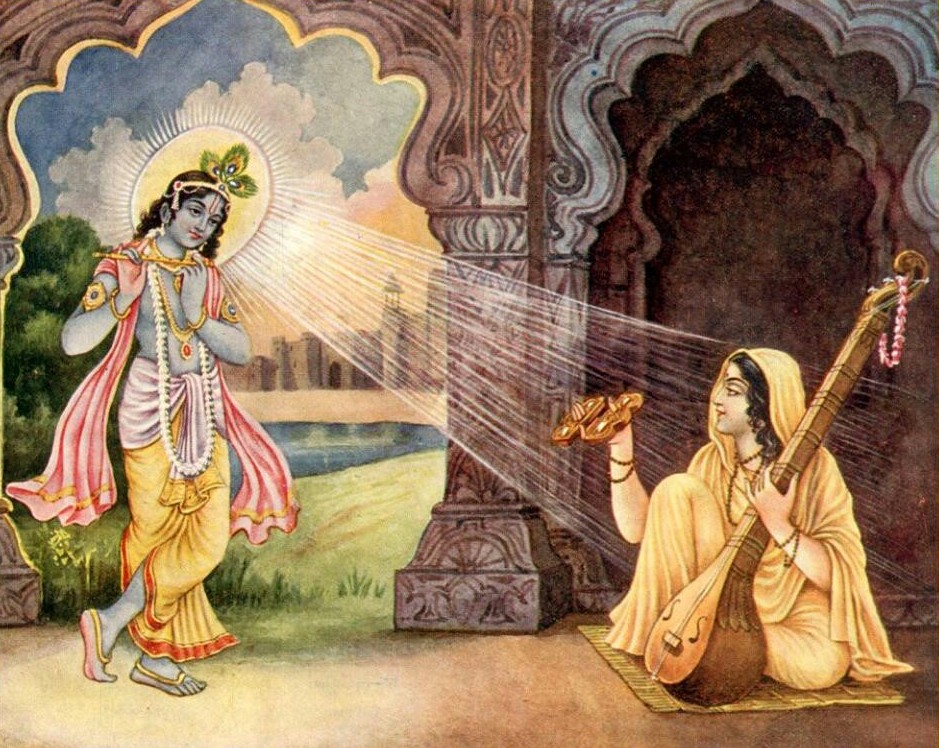
There have been innumerable great women Vaisnavas throughout the ages, who have demonstrated that the qualities of leadership, intelligence, wisdom, and devotion are manifest from a pure heart and mind, irrespective of sex. And it should be noted that the greatest devotee of all time and beyond time is Srimati Radharani.
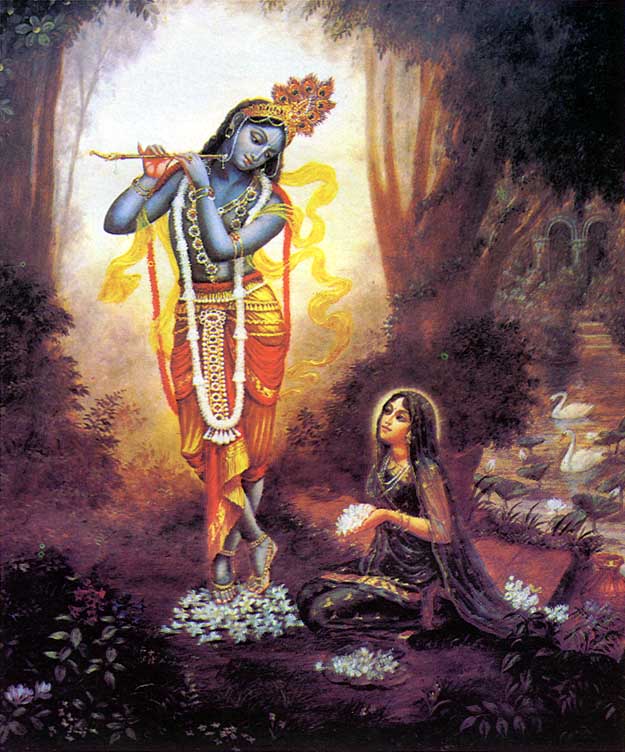
Question 3: Is there any chance that the Vedas were written under the influence of soma, and that it was used to bring forth the stories of Krishna? Someone suggested this to me the other day, and whilst I didn’t accept it, I can also see that it could be used as a tool.
Answer:
The question about soma has cropped up again – seems like you are looking for short cuts. Srimad Bhagavatam explains about soma:
Such materialistic persons, attracted by sense gratification and devoted to the forefathers and demigods, can be elevated to the moon, where they drink an extract of the soma plant. They again return to this planet.
[Srimad Bhagavatam 3:32:3]

I have read about and met many wonderful devotees, who have profound wisdom and great spiritual qualities, who have not needed some material substance to gain enlightenment. In fact they all condemn the use of psycho-active herbs, drugs and chemicals etc. Who needs such a paltry tool? I have never met anyone with actual wisdom and compassion who gained it from a chemical. I know a lot of people, including myself, who have experimented with psycho-active substances and realized that they are material and as such have their own illusions.

And there is no soma in this world. It only exists in the heavenly planets, and it is an intoxicant, not a sacrament leading to enlightenment. It produces heavenly sense gratification, and is likened to being the wine of the heavenly planets. As if Krishna and his great devotees cannot give perfect knowledge without having to resort to a material substance. Where does the idea come from, that the pastimes of Krishna came about from some herbal extract? Who has said this? Are they enlightened, did they give scriptural references, and can they give perfect happiness? I’m afraid this is a nonsense idea.
Krishna makes it very clear in the Gita and other Vedic scriptures, in the teachings of Lord Chaitanya and other saintly teachers that if someone is devoted to Krishna and serves Him with love, chanting His holy names, they will come to Him without fail. He will reveal Himself to them when He is pleased by their sincere efforts to please Him. People who don’t have the security of having a spiritual master who makes everything very clear, end up speculating, trying to make up their own path which usually includes activities they enjoy and avoids things they think might be troublesome. But there are no shortcuts. Anyway, the system Krishna has given us for this age is very nice – we just need to apply it.
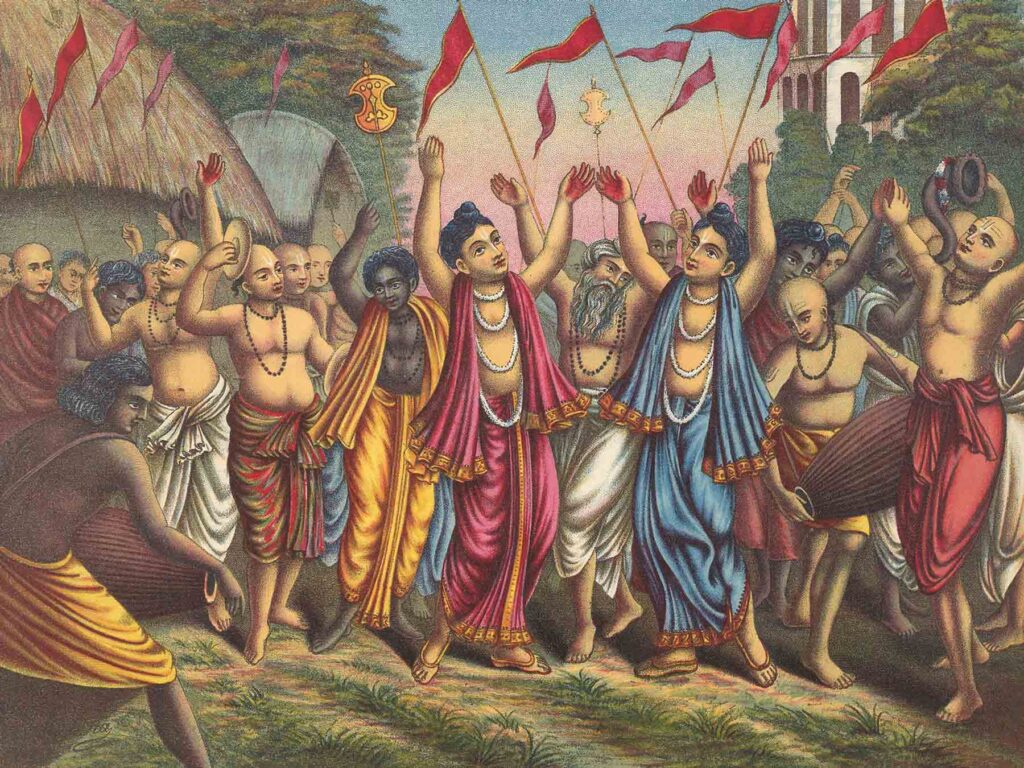
I can guarantee 100% that if you continue to chant with sincerity, in the association of devotees and under the care of a bona fide spiritual master, you will go through real tangible spiritual changes and any misconceptions and misgivings you have will gradually fall away. It won’t happen overnight, but it will happen, as they say in the ad. Do you have anything better to do? Srila Bhaktivedanta Swami called the maha-mantra the great mantra for deliverance. “Man” means mind and “tra” means that which will free or deliver one from material consciousness, from the material world. It works if we apply it.
Question 4: What if it ends up that I can’t find a real connection with your spiritual master. What happens if I try and try and then it just doesn’t happen or he can’t hear me. Some days I think that I am feeling a connection with him, but then I have to stop and ask myself if it is true and real, or if I am just making up a story in my mind. There is no way that I want to do that, this is too important. Maybe if I met him I would know if he was my spiritual master.
Answer:
You cannot necessarily appreciate the devotee of Krishna just by being in his physical presence. Rather than expecting some great cosmic buzz, you need to hear what is being taught and apply it to your life. Then you will see if the teachings are real and if the devotee is real. First you must hear the devotee speaking about Krishna, about spiritual life. The devotee is non-different from his words – his words reveal his heart. Srila Bhaktivedanta Swami said that he lives forever in the form of his instructions and the sincere follower lives with him. When you hear the devotee speak, provided in your heart you have some sincere desire to know and love Krishna, then you will develop attraction, faith and some vision and appreciation of who the devotee is. Otherwise you are always going to be a bee on the outside of the honey jar.

When Jesus was asked:
How do we know you are who you say you are?
[That is, the representative of God] He replied:
If you desire to do the will of my Father, then you will know that I am from Him.
In other words, the Lord in the Heart will confirm the truth of the guru’s spiritual qualities and words if we sincerely want to know Krishna. The connection with the spiritual master is described in a prayer we chant to the spiritual master, Sri Guru Carana Padma:
My only desire is to have my consciousness purified by the words emanating from your lotus mouth.

This wonderful prayer glorifying the spiritual master was written a few centuries ago by a great acharya in our disciplic line named Narottama das. The full translation of this prayer is:
Sri Guru Carana Padma
The lotus feet of our spiritual master are the only way
by which we can attain pure devotional service.
I bow to your lotus feet with great awe and reverence.
By your grace one can cross the ocean of material suffering
and obtain the mercy of Krishna.
My only wish is to have my consciousness purified
by the words emanating from your lotus mouth.
Attachment to your lotus feet is the perfection that
fulfils all desires.
You open my darkened eyes and fill my heart
with transcendental knowledge.
You are my lord birth after birth.
From you ecstatic prema [pure love] emanates,
by you ignorance is destroyed.
The Vedic scriptures sing of your character.
Our spiritual master is the ocean of mercy, the friend of the poor,
and the lord and master of the devotees.
O master, be merciful unto me, please give me the shade of your lotus feet.
Your fame is spread all over the three worlds.
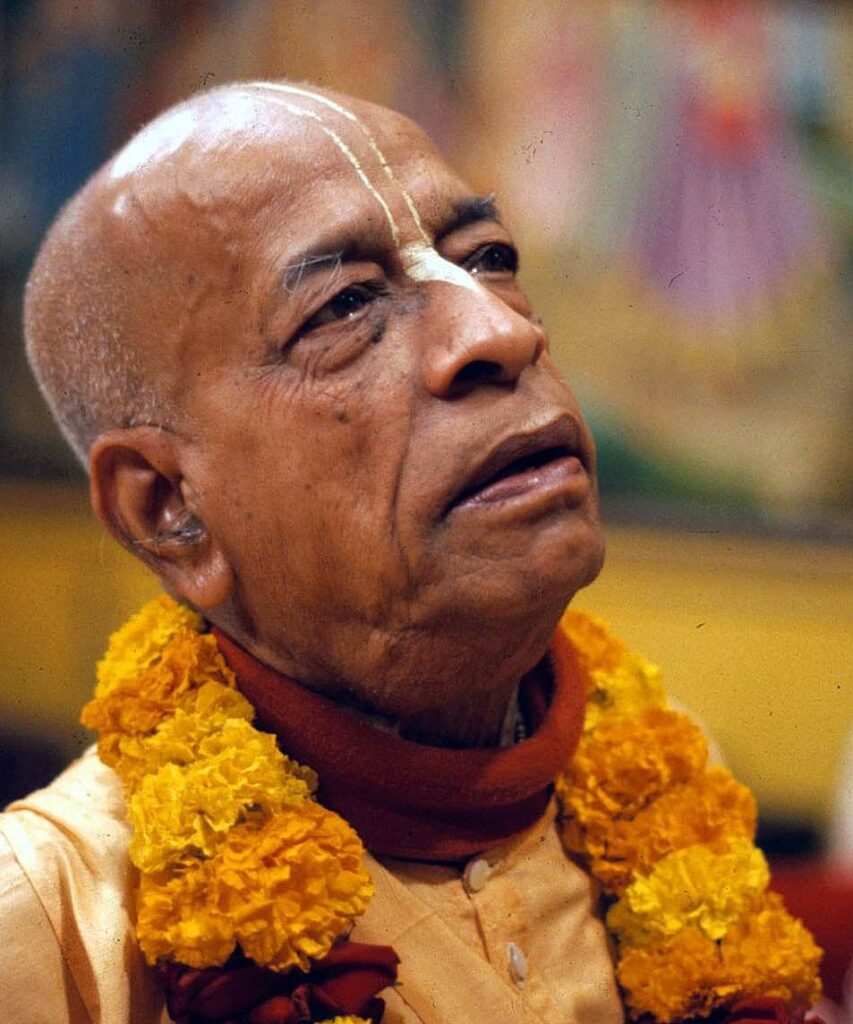
In the conclusion to the Chaitanya-caritamrta, Srila Bhaktivedanta Swami says:
Although, according to material vision, His Divine Grace Bhaktisiddhanta Sarswati Thakur Prabhupada passed away from this material world on the last day of December, 1936, I still consider His Divine Grace to be always present with me by his vani, his words. There are two ways of association – by vani and by vapu. Vani means words, and vapu means physical presence. Physicial presence is sometimes appreciable and sometimes not, but vani continues to exist eternally. Therefore we must take advantage of the vani, not the physical presence. Bhagavad-gita for example is the vani of Lord Krishna. Although Krishna was personally present five thousand years ago and is no longer physically present from the materialistic point of view, Bhagavad-gita continues.
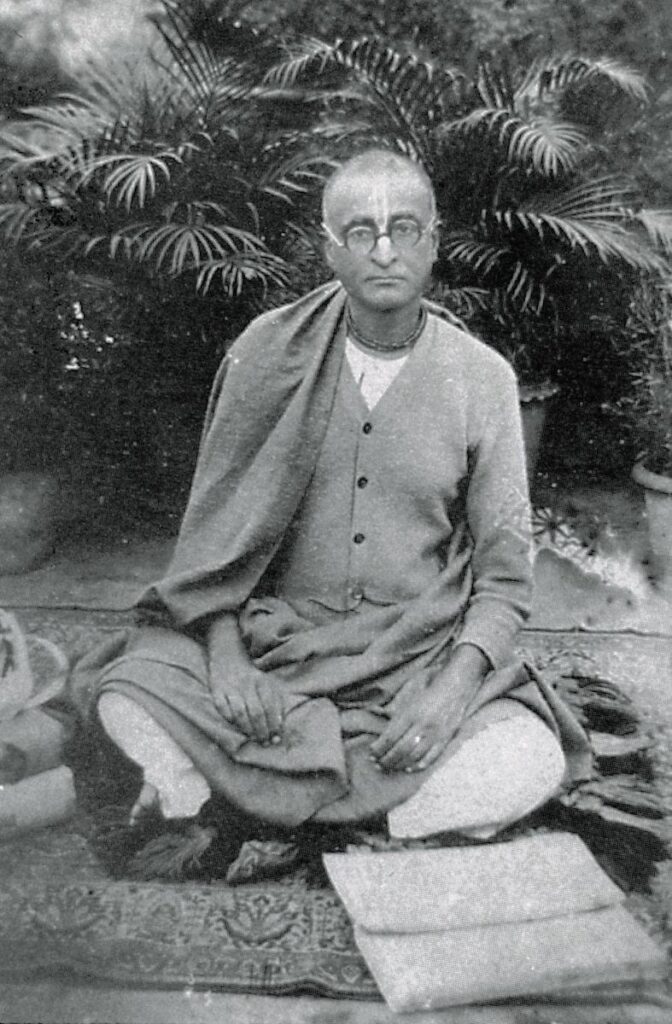
What I am trying to say is that if you are sincere and hear from Krishna’s devotee, and follow his instructions, then he will be real to you and in your life, and you will experience the relationship growing stronger and deeper. A couple of weeks ago you could not imagine how you could develop a relationship with the devotee of Krishna, but I think you can now see a bit more clearly how a transcendental relationship can develop. But we must still be careful not to try and imagine things. We just have faith that if I follow the process everything will happen at the right time.
Question 5: Someone told me that bhakti yoga leads you away from everyone and everything you know and think you love, in order to love Krishna and his pure devotee? Is this what it means to develop higher tastes? I know I feel drawn to being around devotees and the kirtan more and more. And while I think that this is okay and positive, and a sign that it is right for me, I need to keep making sure that I am not somehow tricking myself. I’ve been gradually losing interest in some of my old activities and a lot of people I used to hang out with. I have been told that it is a natural progression and I think that is right, if I am seeing the world differently and I am happier than I have been in a long time, then surely it is not bad to let some things and some people go, yeah?
Answer:
Firstly, loving Krishna does not mean that we do not love others, or only love Krishna and the spiritual master. This is what fanatics teach. Included in loving Krishna is love for all living entities who are His parts and parcels. But especially we love and feel most comfortable with our devotee friends because we share something much deeper with them. It is said that devotees are like shores and love for Krishna is like the ocean that flows between them. An advanced devotee loves everyone, but this does not mean that he hugs tigers and kisses cobras. Some people are easier to respect from a distance.

Devotees have a simple code in regard to relating to others. They are tolerant, not envious and are the well-wishers of everyone, and will even try to help their enemies if possible. But they avoid envious people, those who may criticize devotees, especially the pure devotee of Krishna. A devotee tries to associate and make friendship with other devotees, especially those who are more advanced than themselves. They try to help the innocent people who may not have knowledge, but are interested and respectful. And they avoid envious people who want to criticize Krishna, His names and His devotees.
As for your relationships with family and friends, you are not obligated to maintain all relationships forever. First of all, our obligation is to re-establish our relationship with Krishna. This is the meaning of yoga – union of the individual soul with the Supreme Soul. This is the goal of life, and other relationships which help us to achieve this goal are beneficial. This may mean associating with those who are more advanced than us and can help us to learn and become more focused on Krishna. It may also mean helping others who are less advanced to come to Krishna.
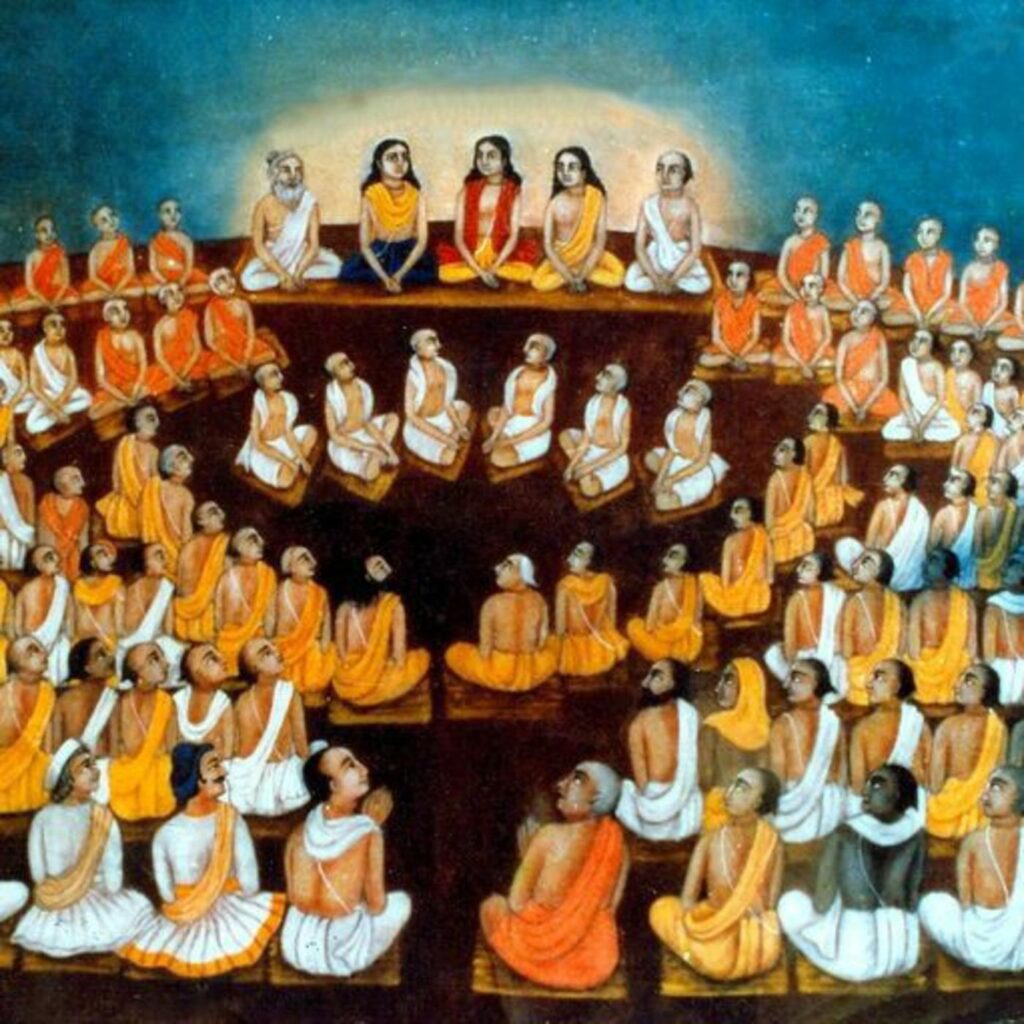
So if our friends and family are not inimical or against our spiritual life, there is not any harm in maintaining these relationships, and we can help them immeasurably just by letting them hear Krishna’s names, have prasadam – food offered to Krishna – or see Krishna’s form. We do not shove Krishna down their throats, but they will benefit by being around you. Sometimes our mundane relationships provide a good opportunity to develop tolerance. And we should not be fanatics. But if a relationship seriously hinders our spiritual progress by letting us hear offences and criticisms, or by drawing us away from Krishna or tempting us to do things which are not good for us spiritually, then we have every right to cut these ties. But a person should not use this as an excuse to selfishly abandon their material responsibilities.
Sometimes we have to be a bit callous, when we can see that someone is having a bad influence on us. If I am trying to give my life to Krishna, I will naturally not have much attraction to people who I cannot open my heart to about my spiritual life, or who I am always worried will find fault and criticize. All of this comes from envy – if people want to be number one in your life, they don’t like Krishna or His devotee being number one. But this is the thing that devotees love about each other, the importance they place on Krishna and His perfect lover. They don’t want you all to themselves. Krishna is the glue in their relationship. And when we say “devotees,” it is important to understand that not everyone who comes to kirtan or “belongs” to a society of devotees has all of the qualities of an advanced devotee. Be respectul to everyone, but be selective with who you open your heart to and associate with.
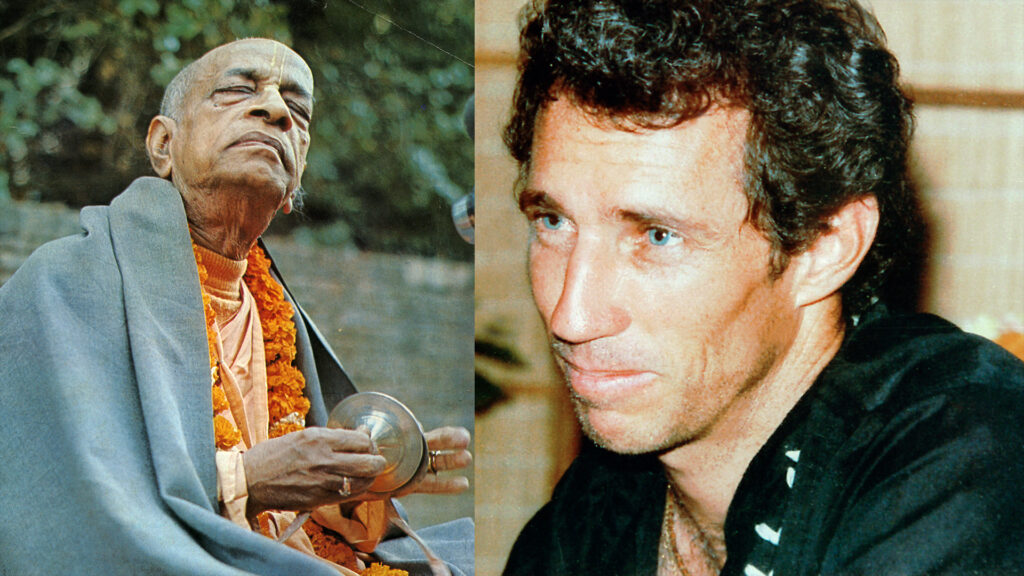
It is also important to understand that a society of devotees is like a hospital. People come to devotional service from all situations, with different degrees of sincerity, with problems and flaws and in need of purification. So just as we would not be surprised to find sick people in a hospital, we should not be surprised when we find someone engaged in following the sadhana bhakti process to some degree or other fails to measure up in some way to our lofty standards. Lots of people come along and chant or help who have a few problems, and we should try to be tolerant and not judge them. Krishna says in Bhagavad gita:
I envy no one, nor am I partial to anyone. I am equal to all. But whoever renders service unto Me in devotion is a friend, is in Me, and I am also a friend to him. Even if one commits the most abominable actions, if he is engaged in devotional service, he is to be considered saintly because he is properly situated. He quickly becomes righteous and attains lasting peace. O son of Kunti, declare it boldly that My devotee never perishes.
[Bhagavad-gita 9:29-31]

In his purport to this verse, Srila Bhaktivedanta Swami says:
… Sometimes, however, it may be seen that a person in Krishna consciousness commits some act which may be taken as most abominable socially or politically. But such a temporary falldown does not disqualify him. In the Srimad-Bhagavatam it is stated that if a person falls down but is wholeheartedly engaged in the transcendental service of the Supreme Lord, the Lord, being situated within his heart, beautifies him and excuses him from that abomination.
The material contamination is so strong that even a yogi fully engaged in the service of the Lord sometimes becomes ensnared; but Krishna consciousness is so strong that such an occasional falldown is at once rectified. Therefore the process of devotional service is always a success. No one should deride a devotee for some accidental falldown from the ideal path, for, as is explained in the next verse, such occasional falldowns will be stopped in due course, as soon as a devotee is completely situated in Krishna consciousness.
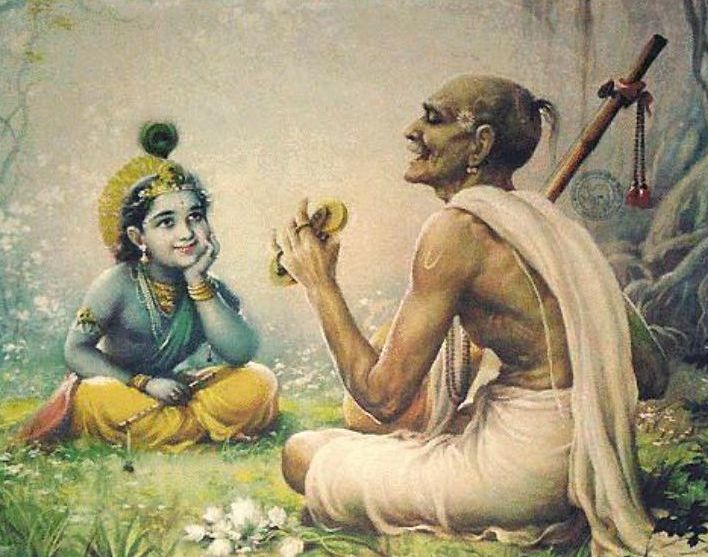
So if someone is chanting Krishna’s names, Krishna considers him to be saintly and He gradually rectifies the faults of such a person. Having been practicing for many years, I can look back and see how many of my friends have changed incredibly over the years: they have all become nicer and noticeably more soft-hearted. Everyone who takes to this process and is careful not to commit offences against other devotees goes through wonderful changes as time goes on.
If they are not so careful, then their progress is slowed down, but still it does not stop, unless they somehow become inimical to a great devotee. I can especially see in myself, that though I still have a long way to go, I cannot deny that I have become a nicer person [not that that would be hard] than I once was, due to associating with Krishna and His devotees. Fortunately, despite my many flaws, my spiritual masters have never rejected me. Instead, they have helped me along with amazing tolerance and love. So we should focus on our own flaws and not be interested in others’ flaws. When we criticize others, we may hurt those we find fault with, but we do far more damage to ourselves spiritually.

Final Statement: Sorry I ask so many questions. Maybe someday in the future I will look back on this time and laugh at myself for wanting to know all the answers to all of the things. Thank you for taking the time to read through this. I really do appreciate it. I know I ask too many things and that I am impatient and impulsive. Please know that always, always my questions to you are asked with the greatest respect and always with the intention of learning more so that I can see more clearly. I want more than anything to be able to live this life, learning how to try to please Krishna and come closer to him.
Reply:
You definitely ask the most questions, and I think your questions are very honest and I love answering them. I wish some of the others would ask more questions as well. This is just a sign that there is something going on, and it is not a crime to be anxious to understand and make progress, and as questions get answered, a person’s faith grows. We don’t want to make the mind quiet by denying our questions – they are very important. At one phony guru’s gatherings, they would sometimes have a sign saying, “Leave your shoes and your mind at the door.” But this only makes for mindless followers. We never ignore or deny our questions – there is an answer for every question.
You are doing fine. If you continue on with your spiritual journey, then Krishna will take care of you and show you – sometimes by trial and error – what you should do and how you should relate to others. Others can give you pointers, but only Krishna and guru can give you the spiritual vision to navigate the snares and pitfalls of life and arrive safely home at Krishna’s world.
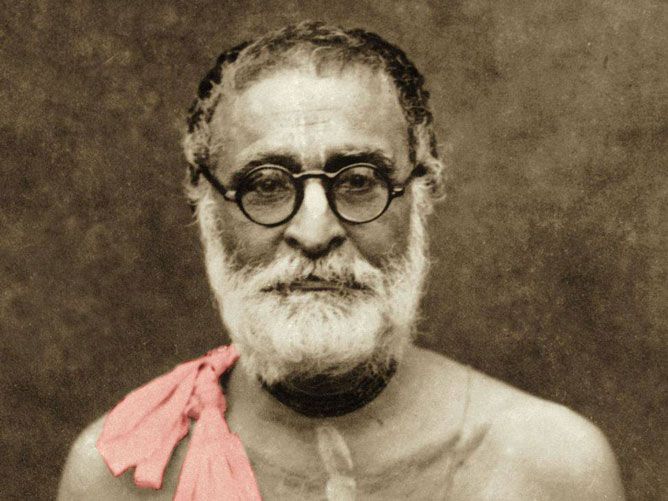
Bhaktisiddhanta Sarasvati, the spiritual master in our disciplic line who lived from 1874-1936 wrote:
Make your way through this impermanent, transitory life in whatever way you can, keeping the goal of worshiping the Lord foremost in your minds. Don’t abandon this goal, even in the face of hundreds of dangers, insults, or persecutions.


Comment
Thank you